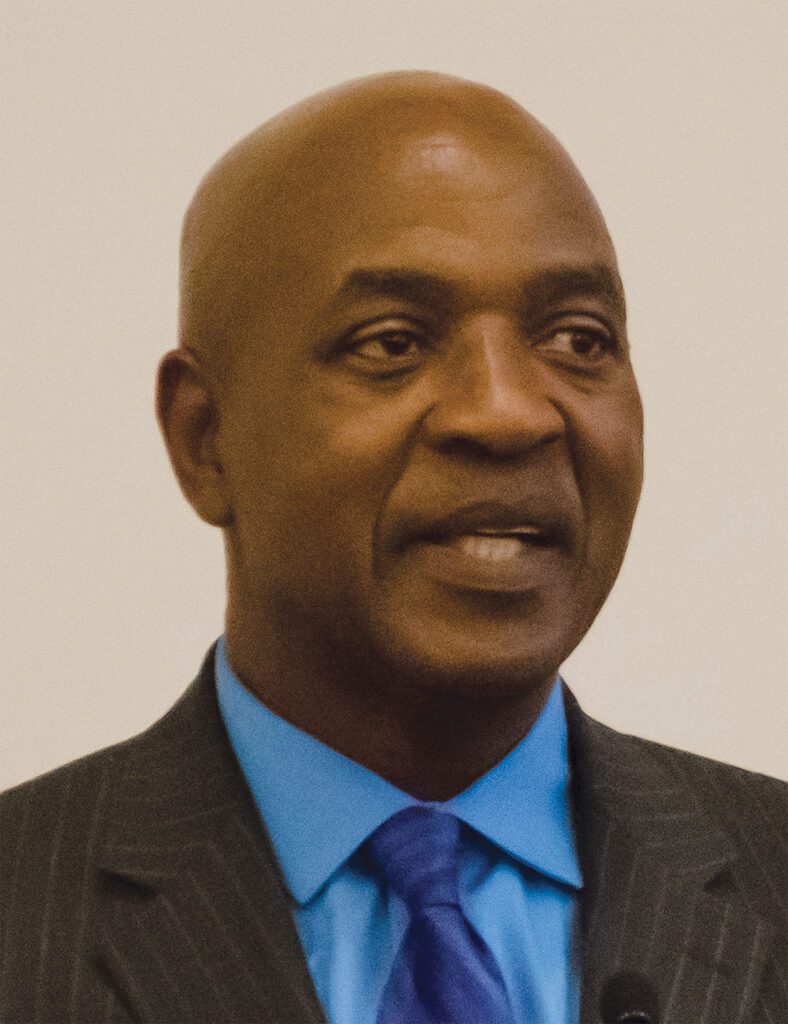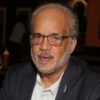
Readings of two biblical scriptures set the tone of a memorial service in Cambridge for Charles Ogletree, the Harvard Law professor called “Tree” who passed away on Aug. 4 in Maryland after a seven-year battle with dementia and Alzheimer’s disease.
The scriptures read aloud at the service Nov. 18 at Harvard’s Memorial Church were: “But let justice roll down like waters, and righteousness like an ever-flowing stream” (Amos 5:24) and “Blessed are those who hunger and thirst for righteousness, for they will be filled.” (Matthew 5:6)
Harvard Law School Dean John F. Manning acknowledged Tree’s righteousness at the school in his establishing its Criminal Justice and Charles Hamilton Houston institutes. The mission of both includes preserving justice through due process and fair trial standards.
Manning praised Tree’s famous “Saturday School” tutorials for law students and his amazing ability to motivate them to return to campus for classes on the weekend. He admired the quiet grace Ogletree showed throughout his dementia struggle.
Kenneth C. Frazier spoke of Ogletree arriving on Harvard’s campus as a fellow first-year law student in 1975 and his eventually becoming president of the National Black Law Student Association. He recalled that Ogletree was mentored by late Harvard Law Professor Derrick Bell and in turn became a mentor to Barack Obama. Frazier also spoke of Ogletree’s days as a young boy picking cotton and tomatoes in his native Central Valley of California to help provide for his family.
Harvard Law Professor David B. Wilkins, who was a junior at Harvard when Ogletree started at the law school, reflected on their growing up in the shadow of Brown v. Board of Education. He cited Ogletree’s empathy and heroism as deputy director of the Washington, D.C. Public Defenders Office in 1978 and remembered him as a person who despised pretense and would, after picking up a client and bringing them to his house for perhaps a meal and then making sure they had his home phone number, drop them off.
Wilkins lauded Ogletree for refusing a promotion to director of the D.C. office in 1985 — the only job at the time he really wanted — when Mayor Marion Barry reportedly told him he would have to fire talented white staffers and friends to achieve the more desirable appearance of a mostly Black office.
It was then Ogletree was offered a teaching position at Harvard Law School, which led to a full professorship. To his teaching duties, he added seeking recognition for the Tulsa Oklahoma Race Riot victims and helping draft the new constitution of South Africa after apartheid ended.
Wilkins described as courageous Ogletree’s possibly career-threatening decision to represent Anita Hill in 1991 at her appearance before the Senate Judiciary Committee hearing on the Supreme Court nomination of Clarence Thomas. Hill, now a professor at Brandeis University, attended the memorial service.
In an interview, Hill noted the remarkable number of lives Ogletree touched and righteous causes he championed as evidenced by the striking photo collage projected during his August funeral at Ebenezer AME Church in Fort Washington, Maryland.
At the recent memorial service, University of Virginia law professor Kimberly J. Robinson called Ogletree a scholar of intention, insight and input. She highlighted some of his topics in the 14 books he authored, including writing for justice and against the death penalty, in favor of reparations and dismantling segregation. His writings have been cited in legal decisions across the country.
Guy-Uriel E. Charles, the Charles J. Ogletree Jr. Professor of Law at Harvard, marveled at the irony of his own story. When Charles was 19, Ogletree’s appearance on a public television show called “Ethics in America” helped convince him to become a lawyer. He proclaimed Ogletree as having the power, depth and eloquence of the late A. Leon Higginbotham Jr., who was a civil rights stalwart and federal judge.
Northeastern University law professor Margaret A. Burnham recalled her first encounter with Ogletree. When she helped win an acquittal for Angela Davis in her California criminal conspiracy trial in 1972, Tree, then a Stanford undergraduate, designed a successful process to investigate prospective jurors.
Burnham, who eventually became his close friend, later discovered his mastery of the craft of trial lawyering. She said Ogletree displayed a huge heart and beautiful mind when he confronted rotten systems that needed reform and that he couldn’t say, no, whenever asked to represent the down-and-out.
Burnham referred to his love for the Red Sox, to which he was a diversity consultant immediately prior to their breaking the 86-year curse and winning the 2004 World Series. She also reminded attendees that he had represented Harvard professor Henry Louis Gates when he was arrested in Cambridge for allegedly trying to break into his own home.
Ogletree, an avid fisherman, and Burnham shared a vacation home on Martha’s Vineyard. The Ogletree and Burnham families sometimes would stay at their house on alternate weeks. Often when Burnham was there and Tree had just left, people would come by looking for the fish he had promised them. She would pretend to look in the refrigerator and reply, “Sorry, no fish left for you.”
Ogletree’s pastor, Reverend Ellis I. Washington of St. Paul AME Church in Cambridge, eulogized Ogletree’s pursuit of justice and his standing up for the causes in which he believed. He said he first learned of Ogletree’s dementia when the professor referred to its initial stages in a speech at the National AME Convention in Philadelphia in 2016. When Washington asked why Ogletree had not told him, he replied in characteristic fashion, “Pastor, I didn’t want to worry you.”







